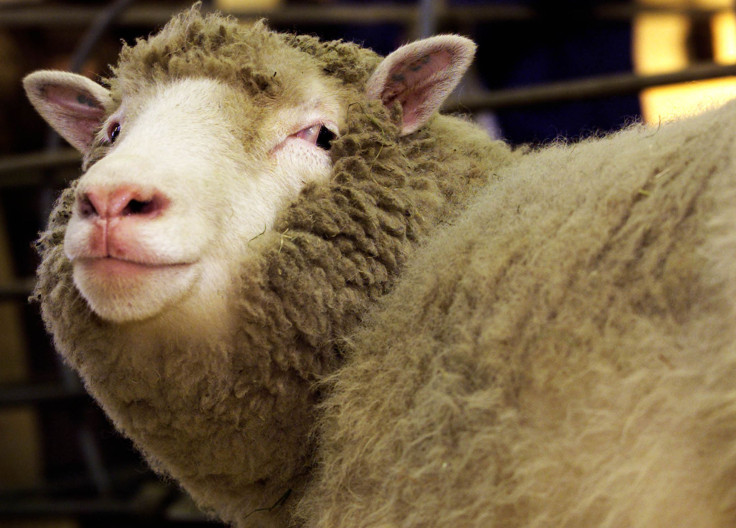Dolly’s Sister Clones Are Alive And Aging Normally, Researchers Say

At first glance, Daisy, Debbie, Denise and Diana are like any other sheep, ambling in a green field in Nottingham, England, chewing cud and minding their own business. Unbeknownst to them, however, the four are part of something greater, and are thus being closely watched by humans across the world.
The reason — they are clones of the most famous sheep in history.
“‘Sister clones’ probably best describes them,” Kevin Sinclair, a professor of developmental biology at the University of Nottingham, and the lead author of the first detailed and comprehensive assessment of age-related non-communicable diseases in cloned organisms, told NPR. “They actually come from the exactly the same batch of cells that Dolly came from.”
Dolly — the world’s first mammal cloned from an adult somatic cell — was born on July 5, 1996. Although her birth stunned scientists across the world, many of whom saw it as an event heralding the era of cloned pets and eventually cloned humans, her premature death in 2003 dashed these hopes.
The ill-fated ewe was euthanized when she was just 6 1/2 years old — halfway through her expected life expectancy — after she was diagnosed with arthritis and showed signs of premature aging.
“That sort of threw fuel to the fire and strengthened concerns that clones might be aging prematurely,” Sinclair said.
The latest study, which is based on observations and experiments conducted on a flock of 13 sheep — including the four “Nottingham Dollies” — was aimed at assessing whether this is really the case. However, as the study, published Tuesday in the journal Nature Communications, shows that at between 7 to 9 years of age — 60 to 70 in human years — these cloned sheep were showing no long-term detrimental health effects.
These findings are based on several musculoskeletal investigations, glucose tolerance, insulin sensitivity and blood pressure tests, and comparative analyses of X-ray and MRI scans of the cloned and normal animals.
Some of the cloned sheep showed signs of mild osteoarthritis, but only one — Debbie — had moderate arthritis.
“Metabolically and cardiovascular-wise, they were indistinguishable from other sheep of that age,” co-author Sandra Corr from the University of Nottingham told reporters Tuesday. “We found that the majority of sheep were really very healthy considering their age.”
Since the four sheep were created using the same technique that birthed the original Dolly — a somatic-cell nuclear transfer — the researchers hope their findings would allay misgivings about cloning.
“There is nothing to suggest that these animals were anything other than perfectly normal,” Sinclair told NPR. “If I put them in with a bunch of other sheep, you would never be able to identify them.”
© Copyright IBTimes 2024. All rights reserved.












